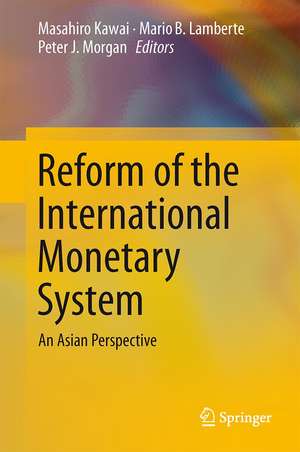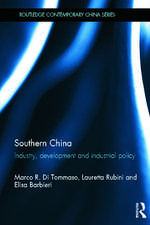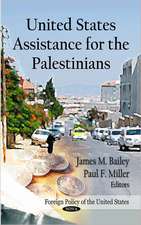Reform of the International Monetary System: An Asian Perspective
Editat de Masahiro Kawai, Mario B. Lamberte, Peter J. Morganen Limba Engleză Hardback – 26 aug 2014
| Toate formatele și edițiile | Preț | Express |
|---|---|---|
| Paperback (1) | 639.59 lei 43-57 zile | |
| Springer – 23 aug 2016 | 639.59 lei 43-57 zile | |
| Hardback (1) | 645.79 lei 43-57 zile | |
| Springer – 26 aug 2014 | 645.79 lei 43-57 zile |
Preț: 645.79 lei
Preț vechi: 759.76 lei
-15% Nou
Puncte Express: 969
Preț estimativ în valută:
123.57€ • 129.35$ • 102.85£
123.57€ • 129.35$ • 102.85£
Carte tipărită la comandă
Livrare economică 31 martie-14 aprilie
Preluare comenzi: 021 569.72.76
Specificații
ISBN-13: 9784431550334
ISBN-10: 443155033X
Pagini: 276
Ilustrații: XVII, 259 p. 54 illus., 42 illus. in color.
Dimensiuni: 155 x 235 x 22 mm
Greutate: 0.57 kg
Ediția:2014
Editura: Springer
Colecția Springer
Locul publicării:Tokyo, Japan
ISBN-10: 443155033X
Pagini: 276
Ilustrații: XVII, 259 p. 54 illus., 42 illus. in color.
Dimensiuni: 155 x 235 x 22 mm
Greutate: 0.57 kg
Ediția:2014
Editura: Springer
Colecția Springer
Locul publicării:Tokyo, Japan
Public țintă
ResearchCuprins
Ch 1 Reform of the International Monetary System: Introduction and Overview (Masahiro Kawai, Peter J. Morgan) Part I International Monetary System Reforms Ch 2 International Monetary Reform: A Critical Appraisal of Some Proposals (Yung Chul Park, Charles Wyplosz) Part II Managing International Capital Flows Ch 3 Rethinking Capital Flows for Emerging East Asia (Stephen Grenville).- Ch 4 New Measures of the Trilemma Hypothesis: Implications for Asia (Hiro Ito, Masahiro Kawai) Part III Asian Currency Arrangements.- Ch 5 Revisiting the Internationalization of the Yuan (Yongding Yu).- Ch 6 Exchange Rate Coordination in Asia: Evidence Using an Asian Currency Unit (Abhijit Sen Gupta) Part IV Regional Financial Cooperation Ch 7 Europe’s Crisis, Coordination Failure, and International Effects (Stefan Collignon).- Ch 8 Prevention and Resolution of Foreign Exchange Crises in East Asia (Chalongphob Sussangkarn) Part V Linking Regional and Global Initiatives Ch 9 Regional and Global Monetary Cooperation (Mario B. Lamberte, Peter J. Morgan).
Notă biografică
Masahiro Kawai is professor, Graduate School of Public Policy, Tokyo University, Japan. He was dean and CEO of the Asian Development Bank Institute from 2007 to 2014, special advisor to the ADB president in charge of regional economic cooperation and integration, deputy vice minister for international affairs of Japan's Ministry of Finance and chief economist for the World Bank's East Asia and Pacific region. He was also professor of economics at the University of Tokyo after serving as associate professor at Johns Hopkins University. His recent publications focus on economic regionalism. He holds a BA in economics from the University of Tokyo and a PhD in economics from Stanford University.
Mario B. Lamberte is team leader, COMPETE Project, The Asia Foundation, Makati City, Philippines. Previously he was director of research at the Asian Development Bank Institute, the president of the Philippine Institute for Development Studies and advisor to the Philippine senate on legislative measures pertaining to financial markets and trade policy reforms. His current areas of interest are regional economic cooperation and integration, financial markets and development economics. He holds a PhD in economics from the University of the Philippines and did his post-doctoral studies at Stanford University.
Peter J. Morgan is senior consultant for research, Asian Development Bank Institute, Tokyo, Japan. Previously he served in Hong Kong, China as chief Asia economist for HSBC, responsible for macroeconomic analysis and forecasting for Asia. Before that, he was chief Japan economist for HSBC and earlier held similar positions at Merrill Lynch, Barclays de Zoete Wedd and Jardine Fleming. Prior to entering the financial industry, he worked as a consultant at International Business Information KK in Tokyo, specializing in financial sector consulting. His current research interests are macroeconomic and financial sector policy.
Mario B. Lamberte is team leader, COMPETE Project, The Asia Foundation, Makati City, Philippines. Previously he was director of research at the Asian Development Bank Institute, the president of the Philippine Institute for Development Studies and advisor to the Philippine senate on legislative measures pertaining to financial markets and trade policy reforms. His current areas of interest are regional economic cooperation and integration, financial markets and development economics. He holds a PhD in economics from the University of the Philippines and did his post-doctoral studies at Stanford University.
Peter J. Morgan is senior consultant for research, Asian Development Bank Institute, Tokyo, Japan. Previously he served in Hong Kong, China as chief Asia economist for HSBC, responsible for macroeconomic analysis and forecasting for Asia. Before that, he was chief Japan economist for HSBC and earlier held similar positions at Merrill Lynch, Barclays de Zoete Wedd and Jardine Fleming. Prior to entering the financial industry, he worked as a consultant at International Business Information KK in Tokyo, specializing in financial sector consulting. His current research interests are macroeconomic and financial sector policy.
Textul de pe ultima copertă
The recent global financial crisis and its aftermath, including the sovereign debt and banking crisis in Europe, are key drivers of the current policy debate on the international monetary system. The crisis highlighted a number of weaknesses of the current international monetary system including over-reliance on the US dollar as the key currency for international transactions, the vulnerability of emerging economies to volatile international capital flows, and the lack of a reliable international financial safety net. Another important development is the potential development of the yuan as a global reserve currency.
One area of debate surrounds the search for alternative international reserve currencies to supplement the role of the US dollar as the preeminence of the United States in the global economy is being gradually eroded. A second question relates to the management of monetary and currency policy in the presence of large and volatile capital flows. A third issue is the need for a global financial safety net and the role that regional financing arrangements can play in it. A fourth topic is the need for institutional support mechanisms to make a common, single currency system (such as the eurozone) viable, including fiscal policy coordination and banking union. A fifth important question is the value of soft currency cooperation at a regional level where economies are highly interdependent as in the case of Asia.
This volume brings together studies that address aspects of reform of the international monetary system noted above. Many of the studies have a specific focus on Asia, while others address such diverse areas as the implications of the eurozone crisis, reforms of the international monetary system, and cooperation of regional and global safety nets. Given that the period of very low interest rates and sluggish growth in the major developed economies is likely to persist for some time, these conditions will tend to support continued large-scale capital outflows to Asian and other emerging economies. Therefore, the topics covered in the book are both urgent and timely.
Masahiro Kawai is professor, Graduate School of Public Policy, Tokyo University, and was dean and CEO of the Asian Development Bank Institute from 2007 to 2014. Mario B. Lamberte is team leader, COMPETE Project, The Asia Foundation, Makati City, Philippines, and was director of research at the Asian Development Bank Institute from 2007 to 2012. Peter J. Morgan is senior consultant for research, Asian Development Bank Institute, Tokyo, Japan.
One area of debate surrounds the search for alternative international reserve currencies to supplement the role of the US dollar as the preeminence of the United States in the global economy is being gradually eroded. A second question relates to the management of monetary and currency policy in the presence of large and volatile capital flows. A third issue is the need for a global financial safety net and the role that regional financing arrangements can play in it. A fourth topic is the need for institutional support mechanisms to make a common, single currency system (such as the eurozone) viable, including fiscal policy coordination and banking union. A fifth important question is the value of soft currency cooperation at a regional level where economies are highly interdependent as in the case of Asia.
This volume brings together studies that address aspects of reform of the international monetary system noted above. Many of the studies have a specific focus on Asia, while others address such diverse areas as the implications of the eurozone crisis, reforms of the international monetary system, and cooperation of regional and global safety nets. Given that the period of very low interest rates and sluggish growth in the major developed economies is likely to persist for some time, these conditions will tend to support continued large-scale capital outflows to Asian and other emerging economies. Therefore, the topics covered in the book are both urgent and timely.
Masahiro Kawai is professor, Graduate School of Public Policy, Tokyo University, and was dean and CEO of the Asian Development Bank Institute from 2007 to 2014. Mario B. Lamberte is team leader, COMPETE Project, The Asia Foundation, Makati City, Philippines, and was director of research at the Asian Development Bank Institute from 2007 to 2012. Peter J. Morgan is senior consultant for research, Asian Development Bank Institute, Tokyo, Japan.
Caracteristici
Provides a comprehensive overview of policy reforms of the international monetary system and Asian currency cooperation Serves as a reference for policymakers, academics, subject experts, business leaders and civil society Provides an analytical overview of currency coordination and policy cooperation in Asia and Europe based on lessons from the global financial crisis and the European sovereign debt crisis Includes supplementary material: sn.pub/extras











